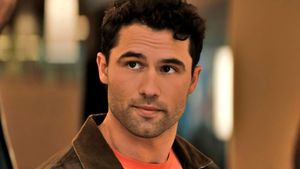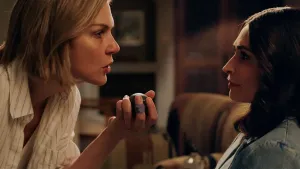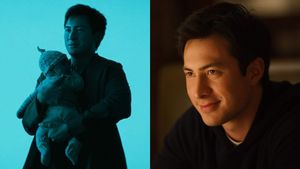From the pockets
of his billowing white robe, Gambia's president pulls
out a plastic container, closes his eyes in prayer, and rubs
a green herbal paste on to the ribcage of his patient.
He then orders the thin man to swallow a bitter yellow
drink, followed by two bananas.
''Whatever you
do, there are bound to be skeptics, but I can tell you my
method is foolproof,'' says Yahya Jammeh, surrounded by his
bodyguards inside his presidential compound as he
prepares to treat more patients. ''Mine is not an
argument, mine is a proof. It's a declaration. I can
cure AIDS and I will.''
In a continent
suffering from the world's worst AIDS epidemic, claims of
miracle cures like those of Jammeh are alarming public
health workers already struggling against the
corrosive effect of faith-healers dispensing herbal
remedies from thatched huts.
The biggest
concern to experts is that Jammeh requires his patients to
cease their antiretroviral drugs, a dangerous move since
doing so can weaken the body's immune system, making
the patient prone to infection, said Antonio Filipe
Jr., local head of the World Health Organization in
neighboring Senegal.
Since January,
when he announced his cure to a gathering of foreign
diplomats, Jammeh has thrown the bureaucratic machinery of
his small West African country behind his claim of a
cure. Although compared to other African nations, the
HIV rate is relatively low here--1.3% of Gambia's
population of 1.6 million--the last six press releases
on the country's official Web site are dedicated to
the president's treatment. Regular radio and TV
addresses publicize his alleged cure, available to Gambians
free of cost. The health ministry issued a declaration of
support.
It's left
international health organizations in a bind, with some like
UNAIDS, the agency that coordinates the global fight against
the deadly virus, reluctant to comment for fear of
damaging relations with the government.
WHO's Filipe was
diplomatic about Jammeh's claims, saying his
organization respects the president's point of view. But he
added, ''As the World Health Organization, we would
like to state quite clearly the
following--number 1, so far there is no cure for
AIDS.''
Jammeh, a
41-year-old former army colonel who wrested control of his
country in a 1994 coup, says his treatment is entirely
voluntary and argues that his medications cannot be
mixed with other drugs because ''I don't want any
complications.''
The claim of a
cure has prompted comparisons to the South African
minister of health who won international ridicule last year
for suggesting that a diet of garlic, beetroot, and
lemon juice is more effective than antiretroviral
drugs. South African president Thabo Mbeki has been
accused of not addressing the epidemic. (His government did
not provide AIDS drugs until a suit by AIDS activists
forced it to in 2002.)
But unlike his
South African counterpart, Jammeh has gone to great
lengths to prove his claim, arranging for blood samples of
the first nine patients to be sent to a lab in Senegal
for testing.
A letter on the
lab's stationery indicates that of the nine, four had
undetectable viral loads, one had a moderate viral load, and
three had high loads, a result posted on the
government's Web site as proof of the cure. However,
the lab technician that performed the tests warned they
are not conclusive since the blood samples were taken only
after the treatment.
''There is no
baseline.... You can't prove that someone has been cured of
AIDS from just one data point. It's dishonest of the Gambian
government to use our results in this way,'' said
Coumba Toure Kane, head of the molecular biology unit
at Senegal's Cheikh Anta Diop University.
Waiting in
plastic chairs outside Jammeh's treatment chamber, the
patients themselves say they don't need lab results to tell
them they feel better.
''It feels as if
the president took the pain out of my body,'' says
Ousman Sowe, 54, who says he was diagnosed with HIV in 1996.
Sowe was among the first batch of nine men and women
who were treated by Jammeh and have been in his care
for nearly a month.
''My appetite has
come back and I have gained weight,'' said Lamin
Ceesay, thin from a nine-year battle with HIV.
Jammeh has so far
refused to disclose details of his herbal concoction,
saying only that the treatment uses seven
plants--''three of which are not from Gambia.''
The treatment begins with the president applying the green
paste, stored inside a deli-style plastic container. Next is
a gray-colored solution, which he splashes on the
patient's skin. It's stored inside an old Evian
bottle, as is the yellowish, tealike brew which
patients are asked to drink. The therapy is administered
numerous times over the course of several weeks.
After treating
the original nine, Jammeh emerged from his black-tinted
treatment chamber carrying a tall wooden staff, a string of
Islamic prayer beads, and a leather-bound Quran. In
front of him, 30 new patients waited on lawn chairs,
drawn, like the first batch, from the roughly 20,000
people currently living with HIV in Gambia.
He told them that
during treatment they must cease drinking alcohol, tea,
and coffee. They also cannot eat kola nuts or have sex.
Jammeh held up a
leather-bound copy of the Quran, pointing it at each of
the patients in turn: ''In the name of Allah, in three to 30
days you will all be cured,'' he said.
The 30, still
awaiting treatment, were herded into a minibus and driven
to an empty hospital ward on the outskirts of the capital,
where they will stay in dormitory-style rooms with
sheets covering the windows for the duration of the
treatment.
In a campaign to
convince the world his cure is real, the patients are
Jammeh's greatest asset and also his potential downfall.
Lying on a mat on
the tiled floor in the hospital ward, a 19-year-old
girl struggles to say her name, spitting a gray-colored
phlegm into her scarf. Like everyone else in the
concrete ward, she has been forbidden to take her
antiretroviral drugs.
Also there was
25-year-old Amadou Jallow, who recently quit his job at a
tourist hotel after his wheelchair-bound mother was
diagnosed with AIDS. In his savings account is
$296--enough, he says, to last him the 30 days
Jammeh promises it will take to heal his mother.
''I'm just afraid
that, what if my account runs low?'' he said. ''But by
then, I think she will be cured.'' (Rukmini Callimachi, AP)




































































Charlie Kirk DID say stoning gay people was the 'perfect law' — and these other heinous quotes